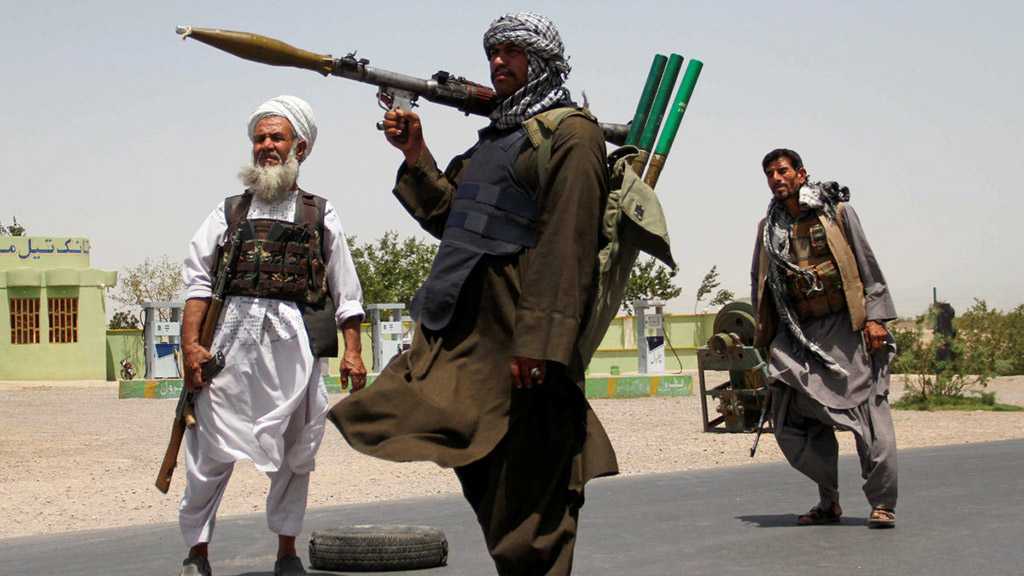Ahlulbayt News Agency: UK Defense Secretary Ben Wallace fears al-Qaeda will return to Afghanistan as the Taliban continues to make rapid gains in the war-ravaged country against the background of the withdrawal of foreign troops.
Wallace signaled that Afghanistan was likely spiraling towards becoming a failed state that could serve as a breeding ground for terrorists.
"I'm absolutely worried that failed states are breeding grounds for those types of people; al-Qaeda will probably come back," Wallace said.
The British defense secretary confirmed that Kandahar, Afghanistan's second-largest city, and the town of Lashkargah were "pretty much now in the hands of the Taliban".
Wallace echoed a number of British and American top military brass, as he warned that a civil war in Afghanistan is imminent. He added that the West must realize that the Taliban is not a single entity but a title for a spate of rival interests.
"Britain found that out in the 1830s, that it is a country led by warlords and led by different provinces and tribes, and you end up, if you're not very careful, in a civil war, and I think we are heading towards a civil war. The Taliban is not entirely a single entity, they break down underneath the title into all sorts of different interests," Wallace told the BBC.
Wallace is not the only person who is concerned over a potential al-Qaeda return to the country: US defense officials believe that a Taliban takeover of Afghanistan will allow the notorious terrorist group behind the 9/11 attacks to rebuild and consolidate.
Almost 20 years after one of the most lethal terrorist attacks in modern history, which prompted the US' 'War on Terror' campaign, al-Qaeda maintains a limited presence in Afghanistan. Top US officials estimate al-Qaeda to have 200 to 300 members in the country. Despite this, the security vacuum left by the pullout of foreign forces could embolden al-Qaeda and other terrorist groups.
Multiple media outlets, including Reuters, quoted local officials as saying that the insurgent group had taken control of Kandahar and Lashkargah on Thursday night. The Taliban also claimed to have seized the nation's third-largest city, Herat, in the west following days of intense fighting there.
With the terrorist group blitzing through Afghan provinces and cities, the Pentagon has decided to deploy 3,000 troops to the country in order to evacuate US embassy staff. Canada and the UK followed in Washington's footsteps to help their nationals leave the war-torn country.
The Afghan government still holds the main city in the north - Mazar-i-Sharif - and Jalalabad, near the Pakistani border in the east, as well as Kabul. However, as the Taliban captured the key central city of Ghazni, located 150 km southwest of Kabul, US intelligence issued a stark warning: the capital city may fall to the Taliban within 90 days.
The renewed assessment by the US intelligence community prompted a United Nations warning that the insurgent group reaching Kabul would have a "catastrophic impact on civilians".
"The Secretary-General is following, with deep concern, developments in Afghanistan, including the latest fighting in Herat and Kandahar. We are particularly concerned about the shift of fighting to urban areas, where the potential for civilian harm is even greater. We hope that the discussions this week in Doha between representatives of the Islamic Republic of Afghanistan and Taliban along with regional and international envoys, will restore the pathway to a negotiated settlement to the conflict," Stephane Dujarric, spokesperson for United Nations Secretary-General Antonio Guterres, stated.
The Taliban intensified its offensive in May, seizing key districts and border crossings, as US President Joe Biden announced that American troops will be pulled out of the country by the anniversary of the 9/11 terror attacks. The deadline was later moved to 31 August.
The United States invaded Afghanistan in 2001 after then-president George Bush announced the beginning of the 'War on Terror' in the wake of the 9/11 attacks to dismantle al-Qaeda and stop it from using Afghan soil as a launching pad for international terrorist attacks by ousting the Taliban.
On 11 September 200, al-Qaeda terrorists hijacked four planes and carried out suicide attacks against targets in the United States. Two of the planes were flown into the twin towers of the World Trade Center in New York City, a third plane hit the Pentagon just outside Washington, DC, while the fourth aircraft crashed in a field in Shanksville, Pennsylvania.
The terrorist attacks claimed the lives of at least 2,977 people and injured some 6,000 others.
/129

